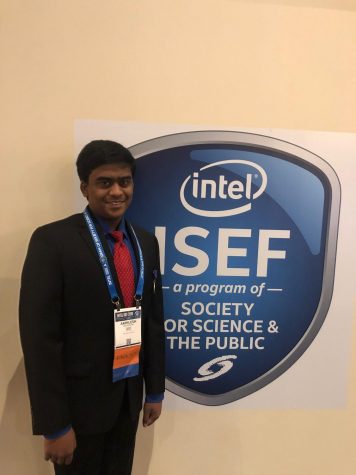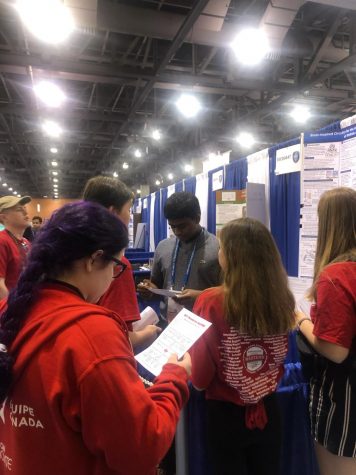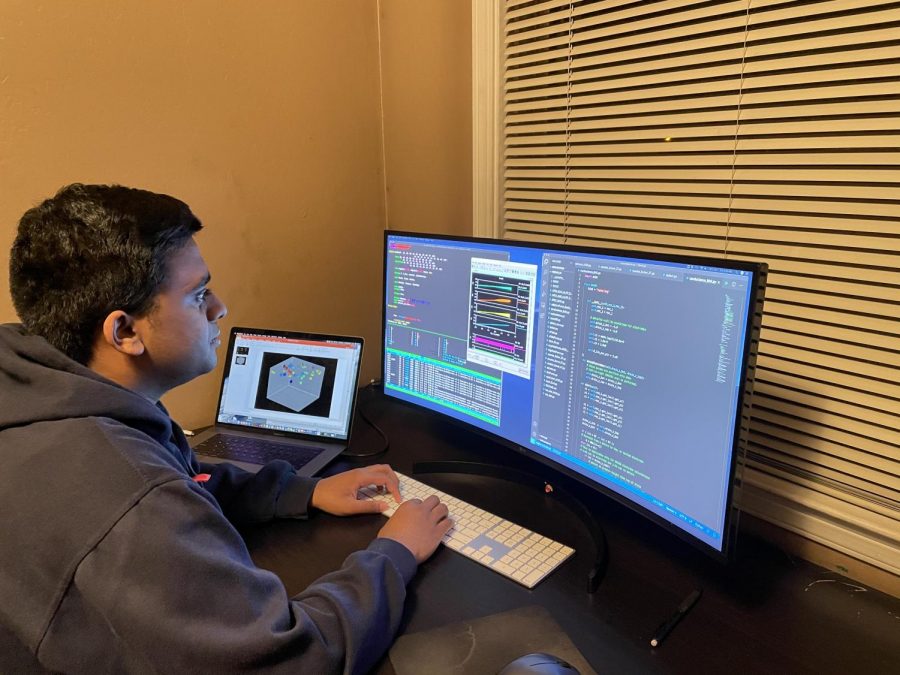One Monarch’s Journey Through the Regeneron Science Talent Search
How Senior Akhilesh Balasingam made use of his passion for scientific research at the Regeneron Science Talent Search.

Senior Akhilesh Balasingam’s first exposure to the Regeneron Science Talent Search was in middle school, after participating in a competition hosted by the same organization: the Society for Science and the Public. Upon hearing about the competition, Akhilesh was immediately intrigued; he had always wanted to continue scientific research in high school and was interested in the opportunity to present his work.
The Regeneron Science Talent Search is a contest for high school seniors that aims to address problems in society through scientific solutions. It is the oldest and most prestigious of its kind in the nation. While 1700 students applied, only 300 moved on as semifinalists, and Akhilesh then joined the top 40 as a finalist. The Talent Search provides a unique forum for students’ research to be recognized and reviewed by a national jury of professional scientists.
In part, Akhilesh wanted to participate because previous winners had produced projects that were fascinating, complex, and addressed important societal problems. For his own project, he drew inspiration from a Scientific American article about AlphaGo, a Google machine that learned how to play a chess-like game called Go. The article highlighted the power disparity between the human brain and the computer, motivating him to explore a developing area of research called neuromorphic, or brain-inspired, computing. For while artificial intelligence software is rapidly improving, the hardware on which the software runs lags behind. This was what Akhilesh would seek to help improve in his project.

To enter the contest, Akhilesh had to submit a 20-page paper detailing his project: creating models of computer memories in order to optimize them for energy-efficient, brain-inspired computing. The process of developing his algorithm was frustrating, presenting challenges that took weeks to solve. Navigating a new environment was difficult at first. The work was primarily computational, featuring complex code, theoretical work, and meticulous planning. Additionally, this was his first time doing university-level research, and Akhilesh talked about how many of the challenges he faced “were mental obstacles that I had to overcome….something that I’ve discovered about research is that there are typically several different routes to arrive at a potential solution. So, to maximize success, it’s important to be open-minded and willing to modify or perhaps even completely scratch attempts.”
Before the pandemic, the Regeneron Science Talent Search invited its finalists to Washington, D.C. to be judged, display their work to the public, and meet notable scientists and government leaders. Although this process has now transitioned to an online format, Akhilesh still was able to take part of the week off from school to attend the finals and interact with his fellow finalists more closely.
As he awaited the coming weeks before his final round of competition, Akhilesh noted how excited he was to be a part of such a prestigious science competition, “It was unexpected but rewarding to feel validated for all of the time I put in over several months.” He points to AP Physics Teacher Dr. McAdams as a mentor who provided invaluable feedback based on his previous experience as an electrical engineer. As Akhilesh presented his progress regularly throughout the year, Dr. McAdams’ experience in the field helped him refine the phrasing of his research paper, making it more accessible and properly scientific in its language.
The genuine enthusiasm for his project was what pushed Akhilesh to persevere despite the many difficulties he encountered. To anyone hoping to participate in the future, his best advice is to “follow your passion and let your curiosity guide you.”


